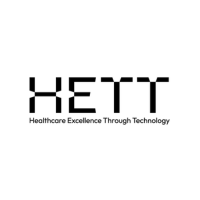The effective implementation of an Electronic Patient Record (EPR) is a basic building block to a digital future that enables us to run safe and quality services, improving efficiency, accuracy and patient care. At the same time, it is one of the most complex initiatives to embark upon - a once in a generation occurrence that impacts each and every corner of a Trust.
With the mandate for all Trusts to achieve the core digital capability standards by 2026, it is imperative that the NHS learns from itself, does not repeat the mistakes of the past and at the same time puts in place a futureproof digital estate that can embrace emerging technologies.
A fundamentally different approach
This requires a fundamentally different approach - moving away from either perceived centralist diktats or multiple competing local approaches to a place where we can maximise the collective knowledge and expertise across the NHS, as well as from wider global experience, to help NHS organisations improve their readiness for implementation and at the same time de-risk their delivery.
And so, the Frontline Digitisation Support Offer is this ‘new way’ and the ‘first of type’ of this approach. This has highlighted:
- The benefits of a multi-channel approach to engagement from traditional online presence to face-to-face action learning sets delivered through ‘Learning Labs’ and Events and Masterclasses.
- The benefits of bringing together Trusts based on where they are in the journey including setting up Procurement Networks to help define and share good practice on how to effectively procure.
- The benefits of bringing NHS organisations and suppliers together as a connected community as part of supplier peer networks to drive out common practices and common approaches.
- The benefits of collating and sharing tangible ‘lessons learnt’ that can enable localities earlier on the journey to put in place the appropriate approaches.
Key Lessons Learnt
Learning from other people’s experiences is such an effective way to learn. You can see below some of our lessons learnt from engaging with a range of Trusts at different stages in their EPR implementation journey:
- Governance and the board level engagement which means that each member of the board has an active role in this organisation wide transformation
- That EPR implementations need to be driven through an operational and clinical transformation lens with the digital teams as enablers, with COOs and Operation leads playing a key role.
- A clear view on the risks - be this clinical safety, financial, vendor, workforce - and the need to have transparency at all levels on the trade-offs and decision-making process
- The need to think about change readiness from the start and throughout the EPR implementation with an over-emphasis on the training needed and the role of clinical and operational champions
- The importance of understanding the quality of the data prior to any technology implementation and the root causes of any issues so that this can be managed and mitigated through the data migration and implementation.
- Having a clear view of the as-is activity so that reporting can be maintained post implementation with a planned approach to how activity is reported.
- Taking the time to think about how the key workflows are to be transformed going into the implementation so that organisations are not simply digitising poor processes.
- Recognising that driving out the ROI is only recognised as you start to optimise the use of the EPR and so to consider the optimisation approach - be this in improving patient flow, discharge planning, patient engagement and information sharing across venues of care.
- Harnessing and future-proofing your infrastructure such as being cloud-hosted to then enable you to add on features and functions based on user needs - be this automation, collaboration suites and data insight solutions.
Progress and Impact
Through the FDSO, we aim to:
- Upskill the Workforce and Provide Forums for Collaboration - Create an active and collaborative community of problem solvers on EPR implementation to help avoid ‘starting from scratch’, the Support Offer has:
- 700+ members in the FDSO Community of Practice
- Held 7 Procurement Peer Network sessions
- Engaged with 120+ Trusts
- Provide Coverage - no-one left behind - Providing ‘good practice’ across the country with over 70% of eligible Trusts engaging in the support offer.
- Improve Readiness - Having those Trusts who have engaged with the support offer being more ready for their implementation and change. We have had 240+ NHS colleagues from
40+ Trusts attending the ‘Learning Labs', as well as hundreds attend the 50+ online events and masterclasses held.
At the same time, we’ve been responsive in co-creating good practice for the NHS in addressing key priority topic areas such as the maintenance of reporting by developing the Data Migration and Reporting Playbooks. Also, to support those Trusts who have already implemented an EPR to further set themselves up for success through the Optimisation playbook, as well as a Training playbook which highlights the importance of bringing your staff with you on the EPR implementation journey.
Through the co-design approach and by supporting the NHS to learn from itself, the Support Offer has been positively received, and we intend to continue to develop and enhance the Offer as Trusts continue with their EPR journeys.
We warmly invite and strongly encourage all NHS staff and organisations involved in EPR implementations to engage with the FD Support Offer (FDSO) by either contacting your Engagement Lead, signing up to the FutureNHS site to access the Support Hub, or by contacting us directly at england.fdsupporthubteam@nhs.net.
%20(1).png?width=500&height=58&name=HETT%20insights%20logo%20RGB-04%20(1)%20(1).png)


